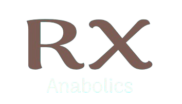Epithalon 5mg (also known as Epitalon) is a synthetic peptide that is often associated with anti-aging and longevity research. It is a tetrapeptide (composed of four amino acids: Ala-Glu-Asp-Gly) that is believed to support the regulation of the cell’s telomeres, which are structures at the ends of chromosomes. Some studies suggest that Epithalon might help increase telomerase activity, potentially delaying the effects of aging and improving cell regeneration.
The typical dosing for Epithalon can vary, but a common protocol is around 5mg per day for a specified period (like 10–20 days), followed by a rest period. People use it in the hope of improving skin health, energy levels, and possibly supporting brain function and immune health, though much of the research is still in the experimental phase.
Sure! Here’s a deeper dive into Epithalon and its potential effects:
Mechanism of Action:Epithalon 5mg
Epithalon 5mg is thought to work by influencing the telomeres, which are the protective caps at the ends of chromosomes. Telomeres naturally shorten as cells divide and age, which contributes to the aging process. Some research suggests that Epithalon may help increase the activity of telomerase, an enzyme that can help extend telomeres and possibly slow down the aging process at the cellular level. This might improve the lifespan and function of cells, potentially leading to longer-term health benefits.
Potential Benefits:Epithalon 5mg
- Anti-Aging and Longevity: The most significant interest in Epithalon comes from its potential to slow the aging process. By supporting telomere maintenance, it’s thought to help cells divide more efficiently, which might lead to improved longevity and a reduction in age-related issues like cognitive decline and skin aging.
- Improved Skin Health: Some reports suggest that Epithalon can contribute to better skin health, reducing wrinkles and improving skin elasticity. This could be due to its effects on cellular regeneration and the production of collagen.
- Cognitive Function: There’s some evidence that Epithalon may improve brain function and delay neurodegenerative processes, potentially offering benefits for conditions like Alzheimer’s and other age-related cognitive decline. It might help promote the regeneration of neurons, improving mental clarity and memory.
- Improved Sleep: Epithalon has been linked to better sleep quality in some individuals, possibly because of its influence on the pineal gland (which produces melatonin). Improved sleep can, in turn, contribute to better overall health and energy levels.
- Immune System Support: There is also some data suggesting that Epithalon could boost immune system function, making it more efficient at fighting off infections and reducing the risks of chronic disease.
- Cancer Prevention: Some studies suggest that Epithalon may help in preventing the formation of cancerous cells by protecting telomeres and encouraging healthy cell regeneration. However, this is still under investigation, and it’s important to note that the link to cancer prevention remains speculative.
Dosage and Administration:Epithalon 5mg
- Common Protocol: A typical regimen for Epithalon involves administering it subcutaneously (under the skin) or intramuscularly (into the muscle), although oral formulations are also available. The common dosage is 5mg per day, for 10–20 days.
- Some people follow a cycle, where they use Epithalon for 10–20 days, then take a break (often 3–6 months). Others might use it on a more long-term basis, depending on individual goals and response.
Safety and Side Effects:
While Epithalon is generally considered to have a favorable safety profile, especially in the short term, it’s important to note that research is still ongoing. Not all potential long-term effects are known.
Commonly reported side effects are minimal, but they can include:
- Injection site reactions (redness, irritation)
- Headaches
- Fatigue
- Nausea
Because of its effects on cell division and telomere maintenance, it’s essential to be cautious and consult a healthcare provider before starting any new regimen. Additionally, people with certain conditions or those who are pregnant or breastfeeding should avoid using Epithalon.
Research and Clinical Evidence:
There is promising data from animal studies and some limited human trials suggesting that Epithalon may have beneficial effects, but comprehensive large-scale clinical trials are lacking. Much of the data comes from Russian studies, and Epithalon isn’t widely approved or studied in many Western countries. Therefore, more research is needed to confirm its full range of benefits and safety.
Conclusion:
Epithalon holds promise, particularly in the realms of anti-aging and longevity, but much of the scientific evidence is still preliminary. If you’re considering trying it, it’s crucial to be cautious and seek advice from a knowledgeable healthcare provider, especially given the lack of widespread regulatory approval and the need for more clinical research.
Would you like to know more about any specific aspect of Epithalon?
If you’re considering using Epithalon, it’s important to consult with a healthcare professional to understand the potential risks, benefits, and proper dosing.








Reviews
There are no reviews yet.